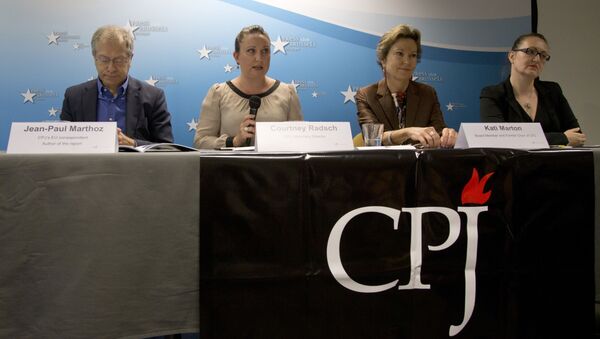"Labeling state media is fraught," CPJ Advocacy Director Courtney Radsch wrote on Wednesday. "Several observers and people working at outlets that have been subject to such designations say the process lacks transparency, according to CPJ interviews and public statements. Some said they perceive the labels as derogatory and subjective".
Twitter, the latest social media giant to label some state media, said it started with accounts they determined are affiliated with a state in the so-called P5 countries - China, France, Russia, the United Kingdom and the United States.
State-financed media that are deemed to enjoy editorial independence would not receive the label, CPJ quoted Twitter’s announcement.
The Twitter accounts of the RT broadcaster and those linked to the Rossiya Segodnya media conglomerate, which includes Sputnik, have been labeled as "Russia state-affiliated media." However, the same labels have not been attached to the BBC or the Voice of America, both of which are state-funded.
Last Thursday, the press department of the Rossiya Segodnya said it was waiting for the labels to be applied to the state-funded media outlets of other countries in order to avoid "double standards."
However, the Russian Foreign Ministry then called the failure to label Western state-supported media as discriminatory, adding that the move has "violated democratic principles."
CPJ quoted Nick Pickles, Twitter’s public policy strategy director, as saying that labeled accounts and their content will no longer be amplified through the platform’s recommendation systems, "meaning that readers may be less likely to see their posts."
CPJ said many its interviewees agreed that categories with more nuance, applied to a wider array of media organizations, would make labels more effective.


